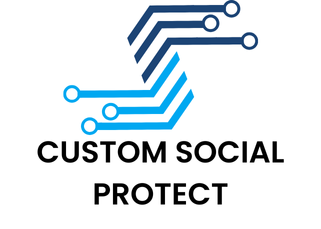The rise of blockchain technology offers immense potential for UK businesses, yet legal challenges can hinder progress. From regulatory compliance to intellectual property concerns, understanding these hurdles is essential for capitalizing on blockchain's benefits. This exploration highlights specific issues that organizations face and provides insights into how to overcome them. By addressing these legal complexities, businesses can more effectively leverage blockchain and unlock its transformative capabilities.
Overview of Blockchain Technology in the UK
Blockchain technology has emerged as a transformative force in various sectors, especially among UK businesses. At its core, blockchain is a decentralised digital ledger that records transactions across multiple computers. This ensures that the records are secure, transparent, and immutable. Each block in the chain contains a list of transactions, and these blocks are linked using cryptography.
In parallel : How Can AI Enhance the Efficiency of UK Public Administration Services?
In the UK, businesses are increasingly adopting blockchain technology to enhance efficiency and security. This adoption is evident in industries such as finance, supply chain management, and healthcare. The decentralised nature of blockchain allows for reduced fraud and increased trust among stakeholders. Furthermore, it provides a platform for smart contracts, which automate and enforce agreements without the need for intermediaries.
However, the integration of blockchain technology requires a thorough understanding of its legal implications. UK businesses must navigate complex regulatory landscapes to ensure compliance. This involves understanding data protection laws, intellectual property rights, and financial regulations. By doing so, businesses can effectively leverage blockchain's potential while mitigating risks.
Also to discover : How Can UK Tech Companies Use Big Data to Innovate Product Development?
In summary, the adoption of blockchain technology in the UK is growing, driven by its promise of enhanced security and efficiency. Understanding its definition, principles, and legal implications is crucial for businesses aiming to integrate this innovative technology.
Legal Framework Governing Blockchain Technology
Navigating the legal framework surrounding blockchain technology in the UK is essential for businesses aiming to harness its potential. The UK legislation applicable to blockchain is multifaceted, encompassing various existing laws. These include data protection regulations, financial services laws, and intellectual property rights. Each plays a critical role in ensuring blockchain implementations comply with national standards.
Key regulatory bodies oversee the use of blockchain technology in the UK. The Financial Conduct Authority (FCA) is pivotal in regulating blockchain applications within the financial sector, ensuring they adhere to financial regulations. Additionally, the Information Commissioner's Office (ICO) ensures compliance with data protection laws, particularly the General Data Protection Regulation (GDPR).
Recent legislative developments have further shaped the landscape for blockchain adoption. The UK government has introduced initiatives to foster innovation while maintaining regulatory oversight. For example, the Financial Services Act 2021 includes provisions that impact digital assets and blockchain-based financial services. Such developments highlight the dynamic nature of the legal environment surrounding blockchain.
Understanding the legal framework is crucial for businesses to mitigate risks and leverage blockchain technology effectively. By staying informed about UK legislation and the roles of regulatory bodies, businesses can navigate the complexities of blockchain integration with confidence.
Compliance Challenges for UK Businesses
UK businesses adopting blockchain technology face several compliance challenges that can impact their operations. One significant hurdle is ensuring regulatory compliance with existing laws, particularly the General Data Protection Regulation (GDPR). The GDPR's stringent requirements on data privacy and protection pose challenges for blockchain's immutable nature, as it can be difficult to modify or erase data once recorded. This creates a tension between blockchain's transparency and GDPR's right to be forgotten.
Additionally, businesses must navigate complex anti-money laundering (AML) and know your customer (KYC) regulations. These regulations are crucial for preventing financial crimes but can be challenging to implement on a decentralised platform. Blockchain's pseudonymous nature can hinder the identification of parties involved in transactions, complicating compliance with AML and KYC requirements.
To address these challenges, businesses need to develop robust strategies that balance blockchain's benefits with regulatory demands. This might involve:
- Implementing privacy-enhancing technologies to align blockchain with GDPR.
- Establishing clear procedures for identity verification to meet AML and KYC standards.
By understanding and addressing these compliance challenges, UK businesses can effectively integrate blockchain technology into their operations while adhering to legal obligations.
Intellectual Property Issues in Blockchain
Understanding intellectual property (IP) rights is crucial when dealing with blockchain technology. As blockchain innovations surge, protecting these advancements becomes vital. IP rights in the blockchain realm primarily involve patents and copyrights, each presenting unique challenges.
Securing blockchain patents can be particularly daunting. Given the rapid evolution of blockchain technology, determining the novelty and inventiveness of a blockchain innovation is complex. The challenge lies in distinguishing between a genuinely innovative blockchain solution and one that merely applies existing technology in a new context. Furthermore, the global nature of blockchain adds another layer of complexity, as patent laws vary across jurisdictions.
Copyright issues also arise with blockchain-based content. While blockchain itself is a method of recording and verifying transactions, the data or content recorded can be subject to copyright protection. This includes digital assets, smart contracts, and creative works stored on the blockchain. However, the decentralised nature of blockchain complicates the enforcement of copyright, as it can be challenging to control and monitor the distribution of copyrighted material.
Navigating these IP challenges requires a comprehensive understanding of both blockchain technology and existing intellectual property laws. By addressing these issues, businesses can better protect their blockchain innovations and ensure compliance with IP regulations.
Data Privacy Concerns
Understanding data privacy within blockchain technology is crucial, especially given the implications of data privacy laws like the GDPR. Blockchain's immutable nature presents challenges in ensuring GDPR compliance, as data recorded on a blockchain is difficult to modify or delete. This poses a conflict with GDPR's "right to be forgotten," requiring innovative solutions to balance transparency with privacy.
To enhance blockchain security and ensure data privacy, businesses can adopt several best practices. These include implementing privacy-enhancing technologies such as zero-knowledge proofs, which allow data verification without revealing the data itself. Additionally, employing off-chain storage solutions can help manage sensitive information, keeping it separate from the blockchain while maintaining transparency for other data.
Case studies have highlighted the importance of robust data privacy measures. For instance, a notable data breach occurred when inadequate encryption was used in a blockchain system, leading to unauthorized access to sensitive data. Such incidents underscore the need for stringent security protocols and continuous monitoring to safeguard information.
Incorporating these practices not only helps in maintaining GDPR compliance but also enhances the overall trust in blockchain systems by prioritising data privacy and security.
Case Studies of Legal Challenges
Examining case studies of legal challenges can provide valuable insights into the complexities of blockchain adoption in the UK. One notable example involves a financial firm that faced scrutiny from the Financial Conduct Authority (FCA) due to non-compliance with financial regulations. This case highlighted the importance of understanding the legal landscape and the need for meticulous regulatory adherence.
Another significant case involved a healthcare company implementing blockchain for patient data management. The company encountered legal challenges regarding GDPR compliance, specifically the "right to be forgotten." This prompted them to adopt privacy-enhancing technologies, showcasing the necessity of aligning blockchain practices with data protection laws.
Lessons learned from these case studies emphasize the importance of proactive legal strategies. Businesses have employed various tactics to navigate legal hurdles, such as engaging with regulatory bodies early in the development process and investing in legal expertise to interpret complex regulations.
Strategies like these not only help in overcoming legal challenges but also ensure that blockchain implementations are robust and compliant. By learning from past experiences, UK businesses can better prepare for potential legal obstacles, fostering a smoother integration of blockchain technology into their operations.
Expert Opinions on Blockchain Regulation
Understanding the evolving landscape of blockchain regulation requires insights from those at the forefront. Expert opinions reveal critical perspectives on how regulatory frameworks might adapt to this rapidly changing technology. Interviews with legal experts highlight the potential for more tailored regulations that accommodate blockchain's unique attributes. These experts suggest that while current laws provide a foundation, they often lack the specificity needed for blockchain's nuances.
Regulatory insights from industry leaders further illuminate the path forward. Many leaders advocate for a balanced approach, emphasising the need for regulations that protect consumers without stifling innovation. They stress the importance of collaboration between regulators and the blockchain community to ensure regulations are both effective and practical.
Looking ahead, predictions for regulatory changes suggest a shift towards more comprehensive frameworks. These changes are anticipated to address challenges such as data privacy and security, aligning with global standards while considering local needs. Industry perspectives indicate that such changes will likely focus on enhancing transparency and accountability within blockchain systems.
By considering these industry perspectives, businesses can better prepare for future regulatory landscapes, ensuring their blockchain initiatives remain compliant and competitive.
Best Practices for Legal Compliance
Navigating the complexities of legal compliance in blockchain integration requires UK businesses to adopt strategic best practices. Ensuring adherence to regulations is crucial for leveraging blockchain's potential without legal pitfalls.
Recommended Best Practices:
-
Conduct a Compliance Audit: Regular audits can identify potential compliance gaps in blockchain systems, ensuring alignment with regulations such as the GDPR and financial laws.
-
Develop a Compliance Checklist: Create a detailed checklist covering all relevant regulations. This should include data protection, anti-money laundering (AML), and know your customer (KYC) requirements. Regularly updating this checklist ensures it reflects current legal standards.
-
Engage Legal Experts: Collaborate with legal professionals who specialise in blockchain technology. Their expertise can provide invaluable guidance on navigating complex legal landscapes and interpreting evolving regulations.
- Implement Privacy-Enhancing Technologies: Use technologies like zero-knowledge proofs and off-chain storage to address data privacy concerns, ensuring compliance with GDPR.
Resources for Ongoing Legal Support:
- Legal Consultancy Firms: Partner with firms experienced in blockchain legalities for continuous advice and support.
- Regulatory Bodies: Engage with bodies like the FCA and ICO for the latest regulatory updates and compliance guidelines.
By following these best practices, businesses can confidently integrate blockchain technology while maintaining robust legal compliance.
Future Trends in Blockchain Legislation
As the blockchain landscape evolves, future trends in blockchain legislation are becoming increasingly significant for UK businesses. Emerging trends indicate a shift towards more comprehensive regulatory frameworks that accommodate the unique characteristics of blockchain technology. These frameworks are expected to address challenges such as data privacy, security, and the integration of digital assets into existing financial systems.
One potential regulatory evolution is the development of laws that specifically target blockchain's decentralised nature. This includes creating guidelines for smart contracts and ensuring transparency in blockchain transactions. Additionally, there is a growing emphasis on aligning UK regulations with international standards, which could impact how businesses operate across borders.
The influence of international regulations is another critical factor. As countries worldwide establish their blockchain regulations, UK businesses must navigate a complex global landscape. This may involve adapting to new compliance requirements and understanding how international laws affect domestic operations.
In response to these future trends, businesses should stay informed about legislative changes and proactively engage with policymakers. By doing so, they can better anticipate regulatory shifts and ensure their blockchain initiatives remain compliant and competitive in the evolving legal environment.
Resources and Tools for Navigating Legal Hurdles
Accessing the right resources and legal tools is essential for UK businesses to effectively navigate blockchain's legal complexities. Numerous tools are available to help assess legal compliance, ensuring businesses adhere to regulations like the GDPR and financial laws. These tools often include compliance software that automates the monitoring of legal standards, making it easier to identify and address potential issues.
For a deeper understanding of blockchain regulations, several recommended resources can be invaluable. Industry reports and whitepapers provide insights into current regulatory trends and future developments. Additionally, online platforms offer courses and webinars on blockchain law, equipping businesses with the knowledge needed to stay compliant.
Engaging with legal professionals who specialise in blockchain law is crucial. These experts provide tailored advice, helping businesses interpret complex regulations and develop strategies for compliance. To find such professionals, contact information is often available through legal consultancy firms and professional networks dedicated to blockchain technology.
By leveraging these resources and legal tools, businesses can confidently navigate the legal landscape, ensuring their blockchain initiatives are both innovative and compliant. This proactive approach not only mitigates risks but also fosters a smoother integration of blockchain technology.











